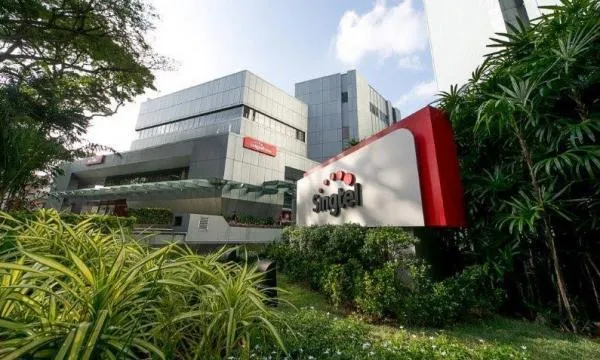
Singtel's EBITDA dropped 24% to $897m in Q1
The group recorded lower equipment sales and roaming and prepaid mobile revenues.
Singtel has posted an earnings before interest, taxes, depreciation, and amortisation (EBITDA) of $897m in Q1 FY2020, which shows a 24% YoY crash from $1.18b in Q1 FY2019, according to its business update in the local bourse.
Operating revenue likewise dropped 13.9% over the same period to $3.54b from $4.11b. These declines were mainly due to lower equipment sales, roaming and prepaid mobile revenues, delays or deferments of some ICT projects and reduced customer spending.
Post-tax contributions from regional associates rose 5.6% YoY to $267m in Q1, despite earnings declines at Telkomsel, AIS and Globe due to the impact of COVID-19. These were mitigated by a lower net operating loss in Airtel India following tariff increases last December.
Singtel took a net exceptional charge of $364m, mainly comprising Singtel’s share of Airtel’s additional provisions for the adjusted gross revenue matter, following the Supreme Court of India’s decision in July and exceptional tax charges. However, this was partly offset by a dilution gain of $550m on Singtel’s reduced equity interest in Airtel following a successful share placement with institutional investors by Bharti Telecom.
Its business in SIngapore saw its revenue fall 22% YoY as measures to counter COVID-19 dampened business and consumer sentiment. Mobile service revenue declined as a result of a sharp fall in roaming and lower prepaid usage, as customers relied on WiFi as they stayed indoors and the number of tourists and foreign workers fell significantly with travel and movement restrictions. These restrictions also led to declines in equipment sales during the period. As a result, EBITDA fell 14%.
In Australia, revenue was down 11%, EBITDA crashed 32%, whilst EBIT plunged 82% YoY on lower operating revenue, fixed margin erosion and operating expenses. Mobile service revenue declined due to lower roaming, late payment fee waivers as well as a higher SIM-only customer mix and ongoing data price competition.
Similarly, equipment sales dipped given lower retail footfall, impact of lengthening handset replacement cycles and cessation of subsidies. Retail fixed margins were impacted by the migration of customers from Optus’ proprietary networks to NBN which resulted in a much higher mix of NBN broadband customers at low resale margins.
Singte’s group enterprise saw a similar impact from the pandemic with revenue down 4.5% mainly due to continued declines in carriage services and weak business sentiment. Group Digital Life’s operating revenue also plunged 49% YoY with lower revenue from Amobee and the cessation of HOOQ’s business in March.



![SBR 5 Lorem Ipsum News 2 [8 May]](https://cmg-qa.s3.ap-southeast-1.amazonaws.com/s3fs-public/styles/exclusive_featured_article/public/2025-05/a_hand_pointing_to_a_futuristic_technology_5b87c9d0e3_3.png.webp?itok=M3Hf-9XR)
![SBR 4 Lorem Ipsum [8 May Top Stories]](https://cmg-qa.s3.ap-southeast-1.amazonaws.com/s3fs-public/styles/exclusive_featured_article/public/2025-05/a_hand_pointing_to_a_futuristic_technology_5b87c9d0e3_2.png.webp?itok=2m5Wl0MX)


![Exclusive three SBR 12 Lorem Ipsum [8 May]](https://cmg-qa.s3.ap-southeast-1.amazonaws.com/s3fs-public/styles/exclusive_featured_article/public/2025-05/a_hand_pointing_to_a_futuristic_technology_5b87c9d0e3_11.png.webp?itok=8kn_UIfA)
![SBR 3 Lorem Ipsum [ Exclusive 2]](https://cmg-qa.s3.ap-southeast-1.amazonaws.com/s3fs-public/styles/exclusive_featured_article/public/2025-05/a_hand_pointing_to_a_futuristic_technology_5b87c9d0e3_1.png.webp?itok=YCyjLegJ)
![SBR 2 Lorem Ipsum [8 May]](https://cmg-qa.s3.ap-southeast-1.amazonaws.com/s3fs-public/styles/exclusive_featured_article/public/2025-05/a_hand_pointing_to_a_futuristic_technology_5b87c9d0e3_0.png.webp?itok=_cKD-29o)

![Video [Event News]](https://cmg-qa.s3.ap-southeast-1.amazonaws.com/s3fs-public/styles/event_news_featured_article/public/2025-05/screenshot-2025-05-08-at-4.58.53-pm_0.png.webp?itok=Kud35sMs)
![Event News SBR 9 Lorem Ipsum [8 may]](https://cmg-qa.s3.ap-southeast-1.amazonaws.com/s3fs-public/styles/event_news_thumbnail/public/2025-05/a_hand_pointing_to_a_futuristic_technology_5b87c9d0e3_8.png.webp?itok=DTh_dbYp)
![Event News SBR 9 Lorem Ipsum [8 May]](https://cmg-qa.s3.ap-southeast-1.amazonaws.com/s3fs-public/styles/event_news_thumbnail/public/2025-05/a_hand_pointing_to_a_futuristic_technology_5b87c9d0e3_7.png.webp?itok=vzDAzb6V)
![Event News SBR 8 Lorem Ipsum [8 May]](https://cmg-qa.s3.ap-southeast-1.amazonaws.com/s3fs-public/styles/event_news_thumbnail/public/2025-05/a_hand_pointing_to_a_futuristic_technology_5b87c9d0e3_6.png.webp?itok=jvHFc4P6)
![Video [Event News]](https://cmg-qa.s3.ap-southeast-1.amazonaws.com/s3fs-public/styles/video_thumbnail/public/2025-05/screenshot-2025-05-08-at-4.58.53-pm_0.png.webp?itok=yZnI0YBb)
![Video 1 SBR [8 May]](https://cmg-qa.s3.ap-southeast-1.amazonaws.com/s3fs-public/styles/video_thumbnail/public/2025-05/screenshot-2025-05-08-at-4.58.53-pm.png.webp?itok=9AAeRz_k)

 Advertise
Advertise

